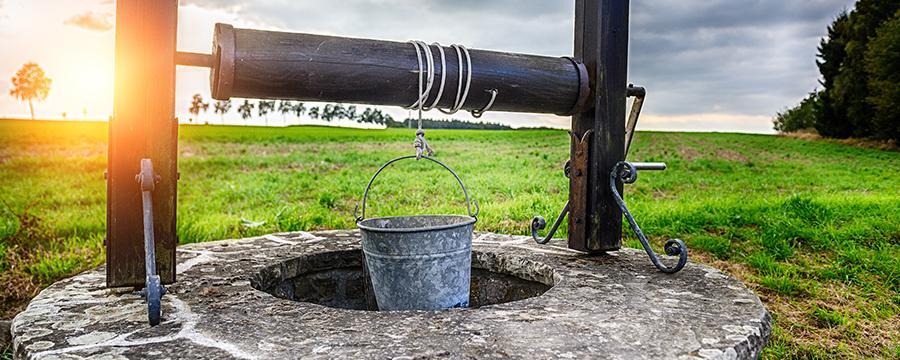Do you build fences or dig wells?
By Dave Peterson
Love is God’s instrument for binding the world together. There are also other attempts to accomplish this task. Some will try hate to unite people. Some will use fear. Both will work for a season or two. So will suffering and need. But love has enduring power. In contrast, sooner or later hate becomes self-destructive. And the causes of fear, suffering, and need eventually either resolve themselves or fragment into self-interest. But love never ends.
The ranchlands in Australia are so arid that it takes many acres to supply each cow with enough food to survive. So the cattle ranches are not measured in square acres but in square miles. In that far flung environment, fences are impractical. So how does the rancher keep track of the cows? The answer is water wells. As long as fresh water keeps rising from the wells, you never have to worry about where the cows are. Sooner or later, they’ll come back to the well because the well gives life.
In this little letter, John returns over and over to the subject of God’s love and our duty to love as we have been loved. This love wells up from God’s inexhaustible core. Unfortunately, we often reduce God to the character of a ranch hand whose main interest is setting and maintaining fences that determine who’s right and who's wrong, good and bad, in or out.
But in John’s letter, God’s activities hardly sound like fence-tending. Using seven examples, John reminds us that God’s love is the agent that gives us life, pays for our rebellion, intimately abides within us, perfects us, stirs up a spirit of boldness within us, releases us from fear, and sends us out as missionaries of love. Seven examples and not one sounds like tending fences. The more of these qualities we share with others, the more tightly we are bound to each other.
Binding agents hold things together: eggs in cooking, cement in concrete, tie beams in timber framing, wax in paint, straw in clay for bricks, and clay in straw for insulation, and all sorts of binding agents in pills. But the greatest of these is love.
Love is God’s supreme binding agent. Love in any quantity counts. Even if you can’t love a lot, at least love a little, and little by little God will free you from fear and hatred and even death.
Think and Pray
What issues and situations tend to set you against other people? What’s your usual response? (let things be, attack the problem, etc.) How do you respond to the idea that God is more interested in digging wells than building fences?
Eternal God, Author and Sustainer of life, it is by your design that love holds history together. I confess to being slow to grasp the full dimensions of your love. My own sin blinds me to your love, and my fears deafen me. And so I come now to the deep well of your love. Thank you for welcoming me with such open arms. Amen.
---------------------------------------------------------
Published by The High Calling. Theology of Work Project Online Materials by The High Calling are licensed under a Creative Commons Attribution 4.0 International License. Dave Peterson is an ordained pastor who is the Director of Community Outreach for The Robert and Janice McNair Foundation and Scholarly Advisor for the H. E. Butt Family Foundation. He is the author of Receiving and Giving, Unleashing the Bless Challenge in Your Life. Dave and his wife, Terri, have four adult children and four grandchildren.
